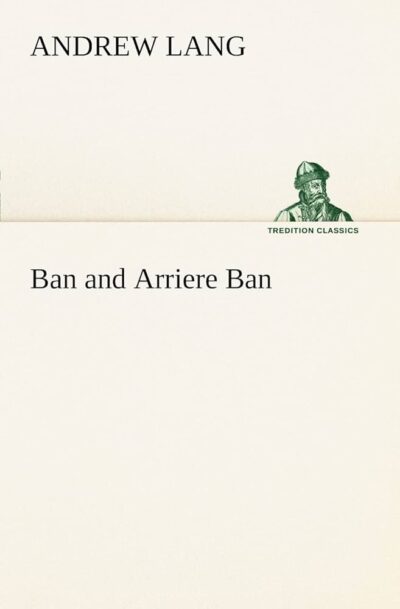249 Results with the "Poetry" genre
Adventure Fiction (1164)
Biography (435)
Business & Finance (1)
Children's Literature (124)
Comics (6)
Culture (51)
Drama (123)
Dystopian (29)
Fable (86)
Fantasy (1132)
Fantasy (203)
Fiction (1010)
Finance (1)
Gothic Fiction (12)
Historical Fiction (615)
History (122)
Horror (56)
Lifestyle (36)
Literary (404)
Literary Fiction (207)
Memoir (113)
Mystery (422)
Non-fiction (87)
Novel (549)
Paranormal Fiction (96)
Philosophical (182)
Philosophy (45)
Political Fiction (14)
Politics (42)
Practical (32)
Psychological (4)
Psychological Thriller (108)
Relationship (6)
Romance Novel (716)
Romantic Melodrama (14)
Satire (91)
Science (46)
Science Fiction (345)
Self-help (68)
Society (65)
Society (2)
Spiritual Growth (1)
story (2)
Thriller (704)
True Crime (56)
view (11)
Women's Fiction (2)
Young Adult (233)
-
 The Perils Of Invisibility serves as both an amusing tale and a subtle reflection on the misguided desire to escape life’s difficulties without addressing their root causes. Old Peter, a man weighed down by both his size and his wife's fiery temper, believes that becoming unseen will free him from domestic tyranny. When the magical offer is presented, he leaps at invisibility, hoping it will grant peace without consequence. But this choice, meant to solve his problems, only reshapes them into more absurd…
The Perils Of Invisibility serves as both an amusing tale and a subtle reflection on the misguided desire to escape life’s difficulties without addressing their root causes. Old Peter, a man weighed down by both his size and his wife's fiery temper, believes that becoming unseen will free him from domestic tyranny. When the magical offer is presented, he leaps at invisibility, hoping it will grant peace without consequence. But this choice, meant to solve his problems, only reshapes them into more absurd…-
157.3 K • Ongoing
-
-
Chapter
Ballad:Old Paul And Old Tim
 Old Paul and Old Tim were two aging men set on capturing the affection of one young woman—Emily. Their rivalry was not marked by charm, wealth, or wit, for they stood level in almost every regard: both were bold, old, and rather indistinct. To Emily, neither man held much more promise than the other; they simply existed as options in a world where choices were slim and expectations were high. She was not particularly swayed by either, and her affections were more influenced by external opinions—namely,…
Old Paul and Old Tim were two aging men set on capturing the affection of one young woman—Emily. Their rivalry was not marked by charm, wealth, or wit, for they stood level in almost every regard: both were bold, old, and rather indistinct. To Emily, neither man held much more promise than the other; they simply existed as options in a world where choices were slim and expectations were high. She was not particularly swayed by either, and her affections were more influenced by external opinions—namely,…-
157.3 K • Ongoing
-
-
Chapter
Ballad: The Mystic Selvagee
 The Mystic Selvagee tells the story of Sir Blennerhassett Portico, whose reverence for the past shapes every aspect of his identity as a naval officer. From a young age, he idolized Lord Rodney, believing no seaman before or since had equaled the Admiral’s valor and brilliance. Determined to honor Rodney not only in memory but in method, Sir Portico patterned his life to match Rodney’s, down to the tilt of his hat and the phrasing of commands. His obsession was not mocked but rather admired, as it came…
The Mystic Selvagee tells the story of Sir Blennerhassett Portico, whose reverence for the past shapes every aspect of his identity as a naval officer. From a young age, he idolized Lord Rodney, believing no seaman before or since had equaled the Admiral’s valor and brilliance. Determined to honor Rodney not only in memory but in method, Sir Portico patterned his life to match Rodney’s, down to the tilt of his hat and the phrasing of commands. His obsession was not mocked but rather admired, as it came…-
157.3 K • Ongoing
-
-
Chapter
Ballad: The Cunning Woman
 The Cunning Woman begins by painting a life that seems almost enchanted. Bill and Jane, residents of a quiet Arcadian village, share a love that’s both deep and delightfully simple. They are untouched by the turbulence of broader society—stock market fluctuations, political strife, or aristocratic intrigues have no place in their sunlit fields. Bill’s strength lies in the soil, in the honest labor of the land, while Jane finds joy among the flowers she tends. Their love, set to song and laughter,…
The Cunning Woman begins by painting a life that seems almost enchanted. Bill and Jane, residents of a quiet Arcadian village, share a love that’s both deep and delightfully simple. They are untouched by the turbulence of broader society—stock market fluctuations, political strife, or aristocratic intrigues have no place in their sunlit fields. Bill’s strength lies in the soil, in the honest labor of the land, while Jane finds joy among the flowers she tends. Their love, set to song and laughter,…-
157.3 K • Ongoing
-
-
Chapter
Ballad: Phrenology
 Phrenology appears in this ballad not as a mere scientific curiosity, but as the pivot around which justice, or the lack of it, hilariously turns. The storyline introduces Sir Herbert, who is clearly aggrieved after a physical assault. He expects the machinery of law to respond swiftly and firmly, as any wronged gentleman would. However, the policeman’s surprising devotion to cranial analysis swiftly alters the path of justice. His belief that a man's skull shape can override eyewitness testimony exposes…
Phrenology appears in this ballad not as a mere scientific curiosity, but as the pivot around which justice, or the lack of it, hilariously turns. The storyline introduces Sir Herbert, who is clearly aggrieved after a physical assault. He expects the machinery of law to respond swiftly and firmly, as any wronged gentleman would. However, the policeman’s surprising devotion to cranial analysis swiftly alters the path of justice. His belief that a man's skull shape can override eyewitness testimony exposes…-
157.3 K • Ongoing
-
-
Chapter
Ballad: The Fairy Curate
 The Fairy Curate begins with a magical union that defies societal expectations—a fairy woman of gossamer grace marrying a practical attorney from Ealing. Their marriage, though kept discreet from the outside world, thrives in its unusual intimacy, blending the mystical with the mundane. When their son Georgie is born, he inherits from both worlds: the sensibility of his human father and the quiet brilliance of his fairy mother. As he grows, it becomes clear that he carries something special—an…
The Fairy Curate begins with a magical union that defies societal expectations—a fairy woman of gossamer grace marrying a practical attorney from Ealing. Their marriage, though kept discreet from the outside world, thrives in its unusual intimacy, blending the mystical with the mundane. When their son Georgie is born, he inherits from both worlds: the sensibility of his human father and the quiet brilliance of his fairy mother. As he grows, it becomes clear that he carries something special—an…-
157.3 K • Ongoing
-
-
 Hongree And Mahry opens in the tranquil beauty of Aquitaine, where emotions stir beneath ancient trees and duty collides with affection. Beneath the Wizard’s Oak, Hongree and Mahry share quiet moments that bloom with genuine affection, far removed from politics or rank. Their connection is unpretentious, built on sincerity rather than grandeur. Yet their peaceful union is shadowed by the unseen eyes of Jooles Dubosc, a man whose ambition seeks to mold Mahry into a life far beyond her desires. He sees her…
Hongree And Mahry opens in the tranquil beauty of Aquitaine, where emotions stir beneath ancient trees and duty collides with affection. Beneath the Wizard’s Oak, Hongree and Mahry share quiet moments that bloom with genuine affection, far removed from politics or rank. Their connection is unpretentious, built on sincerity rather than grandeur. Yet their peaceful union is shadowed by the unseen eyes of Jooles Dubosc, a man whose ambition seeks to mold Mahry into a life far beyond her desires. He sees her…-
157.3 K • Ongoing
-
-
Chapter
Ballad: Etiquette
 Etiquette guides the unusual and ironic survival tale that unfolds in this ballad, where two stranded gentlemen on a remote island let manners dictate their fate. Rather than working together in the face of adversity, they let the absence of a formal introduction keep them apart, highlighting how arbitrary social rules can override basic human instincts. Their division of the island becomes a metaphor for the self-imposed barriers people build, even when common sense urges otherwise. GRAY and SOMERS, each…
Etiquette guides the unusual and ironic survival tale that unfolds in this ballad, where two stranded gentlemen on a remote island let manners dictate their fate. Rather than working together in the face of adversity, they let the absence of a formal introduction keep them apart, highlighting how arbitrary social rules can override basic human instincts. Their division of the island becomes a metaphor for the self-imposed barriers people build, even when common sense urges otherwise. GRAY and SOMERS, each…-
157.3 K • Ongoing
-
-
Story
Ban and Arriere Ban
 Ban and Arrière-Ban by George Meredith is a historical novel set in the medieval period, blending romance, adventure, and intrigue as it follows the lives of knights and noble families. The story explores themes of loyalty, honor, and personal conflict, focusing on the complex relationships between its characters as they navigate societal expectations and the challenges of chivalric duty. The novel's title refers to the medieval French legal terms for summoning all able-bodied men to arms, reflecting the novel's focus on military and familial obligations.
Ban and Arrière-Ban by George Meredith is a historical novel set in the medieval period, blending romance, adventure, and intrigue as it follows the lives of knights and noble families. The story explores themes of loyalty, honor, and personal conflict, focusing on the complex relationships between its characters as they navigate societal expectations and the challenges of chivalric duty. The novel's title refers to the medieval French legal terms for summoning all able-bodied men to arms, reflecting the novel's focus on military and familial obligations.-
4.1 K • Nov 8, '24
-
4.9 K • Nov 8, '24
-
4.0 K • Nov 8, '24
-
-
 How They Held the Bass for King James--1691-1693 recounts one of the boldest episodes in the Jacobite struggle, where four men, once prisoners on a lonely rock fortress in the Firth of Forth, turned captivity into rebellion. The Bass Rock, often used to imprison those loyal to the Covenant, had seen hymns echo off its cliffs as prisoners clung to faith within cold, damp stone. But in 1691, that somber silence was shattered when Halyburton, Middleton, Roy, and young Dunbar, imprisoned there under grim…
How They Held the Bass for King James--1691-1693 recounts one of the boldest episodes in the Jacobite struggle, where four men, once prisoners on a lonely rock fortress in the Firth of Forth, turned captivity into rebellion. The Bass Rock, often used to imprison those loyal to the Covenant, had seen hymns echo off its cliffs as prisoners clung to faith within cold, damp stone. But in 1691, that somber silence was shattered when Halyburton, Middleton, Roy, and young Dunbar, imprisoned there under grim…-
24.9 K • Ongoing
-
- Previous 1 … 16 17 18 … 25 Next
